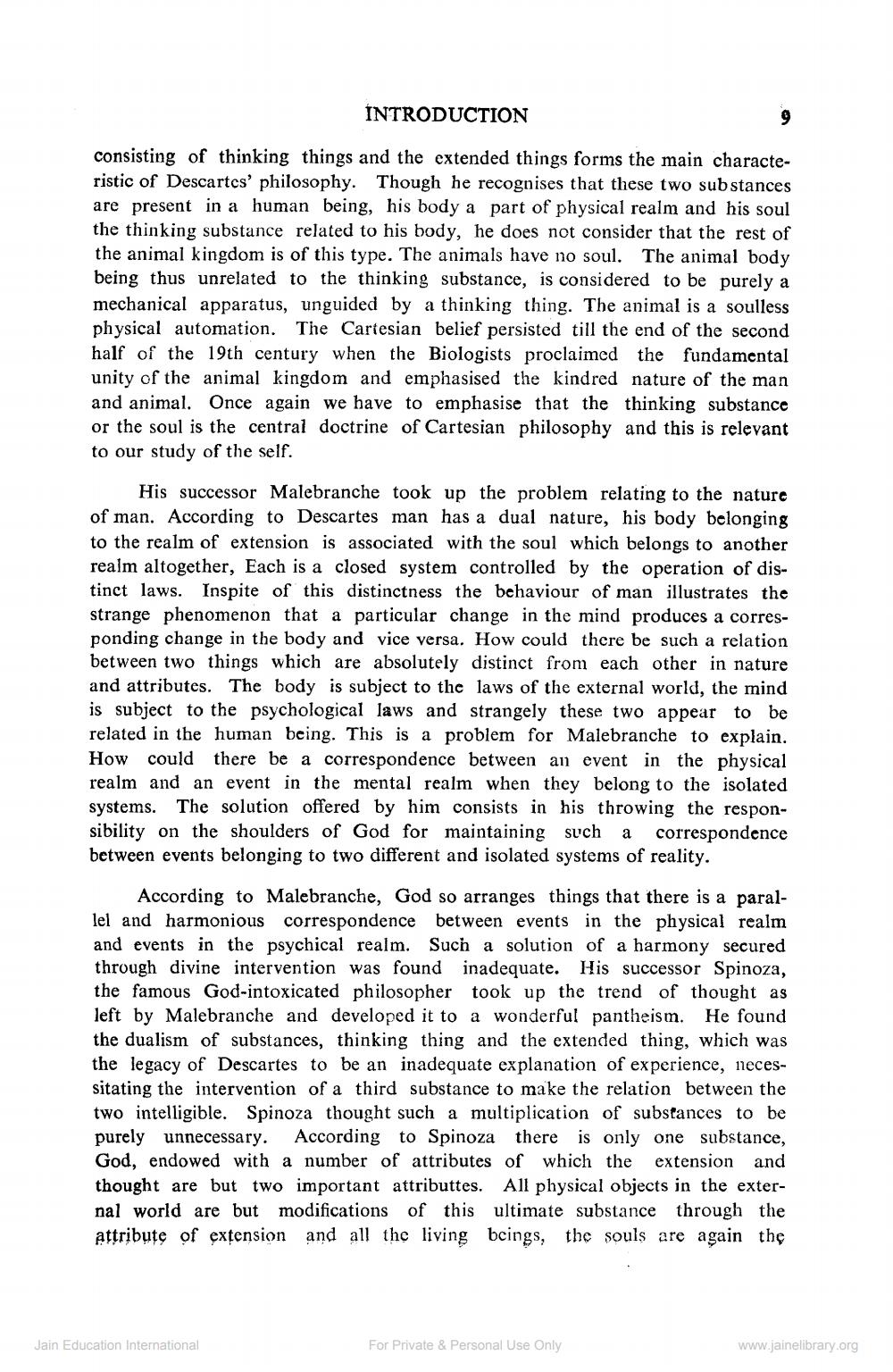________________
INTRODUCTION
consisting of thinking things and the extended things forms the main characteristic of Descartes' philosophy. Though he recognises that these two substances are present in a human being, his body a part of physical realm and his soul the thinking substance related to his body, he does not consider that the rest of the animal kingdom is of this type. The animals have no soul. The animal body being thus unrelated to the thinking substance, is considered to be purely a mechanical apparatus, unguided by a thinking thing. The animal is a soulless physical automation. The Cartesian belief persisted till the end of the second half of the 19th century when the Biologists proclaimed the fundamental unity of the animal kingdom and emphasised the kindred nature of the man and animal. Once again we have to emphasise that the thinking substance or the soul is the central doctrine of Cartesian philosophy and this is relevant to our study of the self.
His successor Malebranche took up the problem relating to the nature of man. According to Descartes man has a dual nature, his body belonging to the realm of extension is associated with the soul which belongs to another realm altogether, Each is a closed system controlled by the operation of distinct laws. Inspite of this distinctness the behaviour of man illustrates the strange phenomenon that a particular change in the mind produces a corresponding change in the body and vice versa. How could there be such a relation between two things which are absolutely distinct from each other in nature and attributes. The body is subject to the laws of the external world, the mind is subject to the psychological laws and strangely these two appear to be related in the human being. This is a problem for Malebranche to explain. How could there be a correspondence between an event in the physical realm and an event in the mental realm when they belong to the isolated systems. The solution offered by him consists in his throwing the responsibility on the shoulders of God for maintaining such a correspondence between events belonging to two different and isolated systems of reality.
According to Malebranche, God so arranges things that there is a parallel and harmonious correspondence between events in the physical realm and events in the psychical realm. Such a solution of a harmony secured through divine intervention was found inadequate. His successor Spinoza, the famous God-intoxicated philosopher took up the trend of thought as left by Malebranche and developed it to a wonderful pantheism. He found the dualism of substances, thinking thing and the extended thing, which was the legacy of Descartes to be an inadequate explanation of experience, necessitating the intervention of a third substance to make the relation between the two intelligible. Spinoza thought such a multiplication of substances to be purely unnecessary. According to Spinoza there is only one substance, God, endowed with a number of attributes of which the extension and thought are but two important attributtes. All physical objects in the external world are but modifications of this ultimate substance through the attribute of extension and all the living beings, the souls are again the
Jain Education International
For Private & Personal Use Only
www.jainelibrary.org




